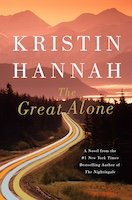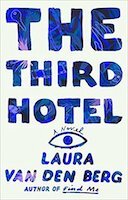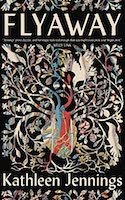4 stars. I hate to say it, but this book should also be classified as horror. It's one of the most bleak, disturbing pieces of historical fiction I've ever encountered. I truly did enjoy myself - I was completely transported - but damn. I'm not sure what sort of ending I was expecting, but I didn't think its final wink would be so sinister. Chilled my bones.
It's been years since I've read Chaucer's Tales, but apparently this is a "reimagining" - go in expecting a noisy party full of distinct characters, dramatic episodes and dark fairy tales. Quite a bit of research went into this, the resulting details of which I appreciated very much. It takes place during England's Plague Years and the setting is illustrated accordingly. Nine travelers, whether by fate or circumstance, come together and embark on a journey to escape the pestilence, and perhaps also escape the consequences of certain actions.
From a technical standpoint, this book has some clumsy exposition. Minor, random characters who give oddly long speeches just to add some context or worldbuilding, stuff like that. Primary characters who also give oddly long speeches only to reiterate what has already been shown, or told, to us as readers.
Along those lines, this book is very, very long. I truly can't decide if it needs editing or if it successfully paints the quiet moments as well as the loud ones. Still, it takes its sweet time and meanders a bit in places. Clearly the author adores her characters and relishes every single visit with them... and expects the reader to do the same. What's the word I'm looking for? Self-indulgent, though that seems a little harsh.
This book also telegraphs its punches. I am legitimately unsure if the various twists, turns and secrets were meant to be predictable or not. The clues are very obvious but the reveals (except for the final one) are treated with such surprise vibes! Coupled with the meandering length, this did give me slight "get on with it" vibes.
All that aside, I highly, highly, highly recommend. This is a thought-provoking tale with a lot to unpack. There's a heavy, heavy sense of dread related to the plague, to which I think we can all relate at this point, and also related to... individual morality, mortality, personal justice, desire, conformity, penance, sin, shame, regret, impulse, righteousness, greed, God, man, the sanctity of the soul... the world is a very dark place and we make it darker for ourselves. We fight many, many battles during life but the hardest are the ones we fight against, and within, ourselves.
Bleak, I warned you! However, while there may not be hope for humanity as a whole (as emphasized explicitly by this book), we can find evidence of warmth, kindness and contentment in tiny moments every now and then. Maybe in a warm meal or a cold beer. Maybe in songs or stories like this one. I encourage anyone interested to check out as many reviews as possible, as many readers more intelligent than I have written about this book from wiser perspectives. FWIW, I'll probably return to it again in the future.
Company of Liars on: Amazon | Bookshop.org | Goodreads










